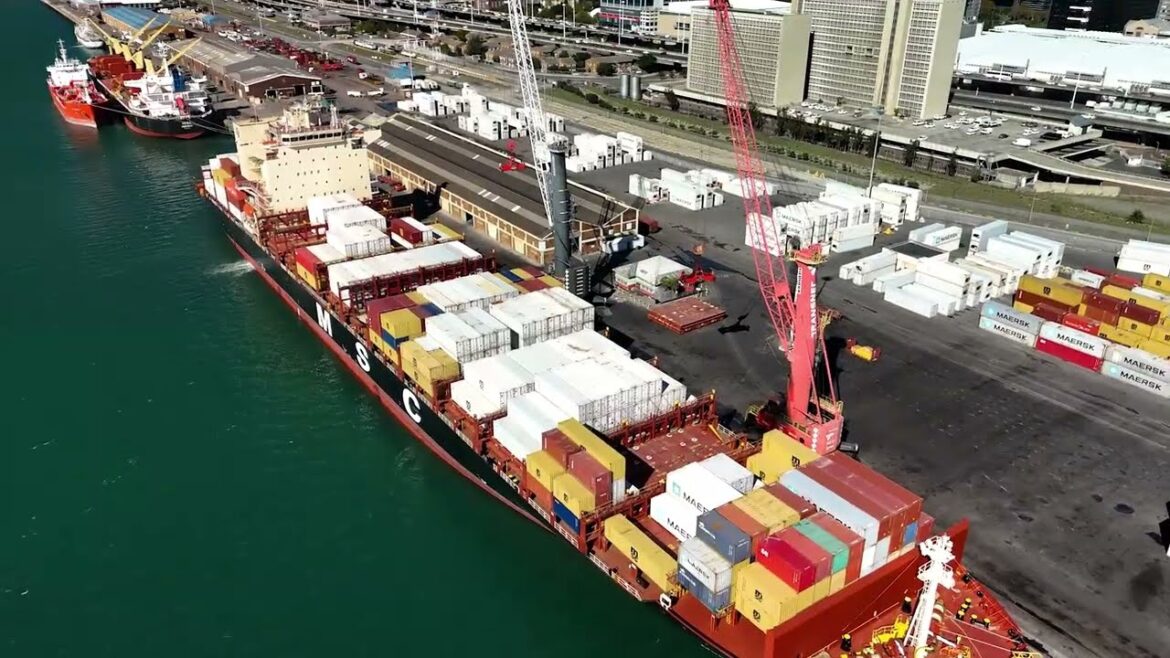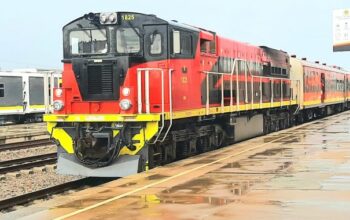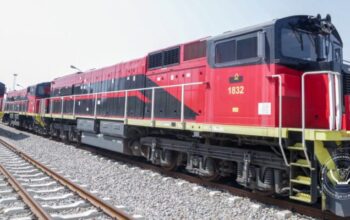Inclement weather and delays at the Port of Cape Town, coupled with the state-owned port and rail operator’s struggle to recover from wind-related disruptions, have forced Maersk to significantly adjust its shipping schedules.
Over the weekend, The Cape Independent reported that the Danish shipping line had informed customers of extended wait times at the port, with delays of up to 10 days becoming increasingly common.
Due to idling at anchorage, Maersk announced that the One Responsibility, a vessel operating on the SA-Europe Container Service (SAECS) in partnership with Hapag-Lloyd and Ocean Network Express, will bypass Cape Town entirely. Originally scheduled to dock, the 7,098-TEU vessel will now head directly to Durban.
Meanwhile, the One Resolution remains anchored off Cape Town after arriving on Sunday, and the Santa Isabel has been waiting at anchorage since March 6.
Another vessel, the Santa Clara, is en route from Durban and is expected to arrive soon, adding to the growing backlog at the port.
Vessel tracking data shows the ripple effect of Cape Town’s delays, with ships scheduled to call at the port being rerouted.
For example, vessels like the Maersk Iyo, operating on the India-Middle East-Africa Mesawa service, have been redirected to Ngqura to maintain their schedules.
To mitigate further disruptions, export bookings from Cape Town will be reassigned to the Maersk Cubango, while import containers from Ngqura will be redirected to their intended destinations.
According to The Cape Independent, several factors are contributing to the port’s inefficiencies, including equipment failures, resource shortages, and chronic wind disruptions.
The South African Association of Freight Forwarders (Saaff) identified strong winds as the primary constraint, alongside ongoing dredging operations.
Between March 3 and 9, the port handled 18,195 TEUs, but Saaff forecasts a 19% decline in throughput, expecting only 14,793 TEUs in the following week.
Criticism is growing against Transnet, the state-owned operator of the Cape Town Container Terminal, for its chronic underinvestment in South Africa’s logistics infrastructure.
This neglect has left the port ill-equipped to manage increasing demand or adapt to adverse weather conditions.
In the World Bank’s 2023 Container Port Performance Index (CPPI), Cape Town was ranked among the worst-performing ports globally, based on container-handling efficiency.
However, various stakeholders, including Saaff executives, have criticized the CPPI for comparing Cape Town to top-performing ports like Yangshan (China), Salalah (Oman), and Cartagena (Colombia).
Separately, research by Linerlytica’s Port Congestion Watch revealed that Cape Town Container Terminal has a queue-to-berth ratio of 0.78, highlighting the systemic challenges facing South Africa’s maritime logistics sector.




